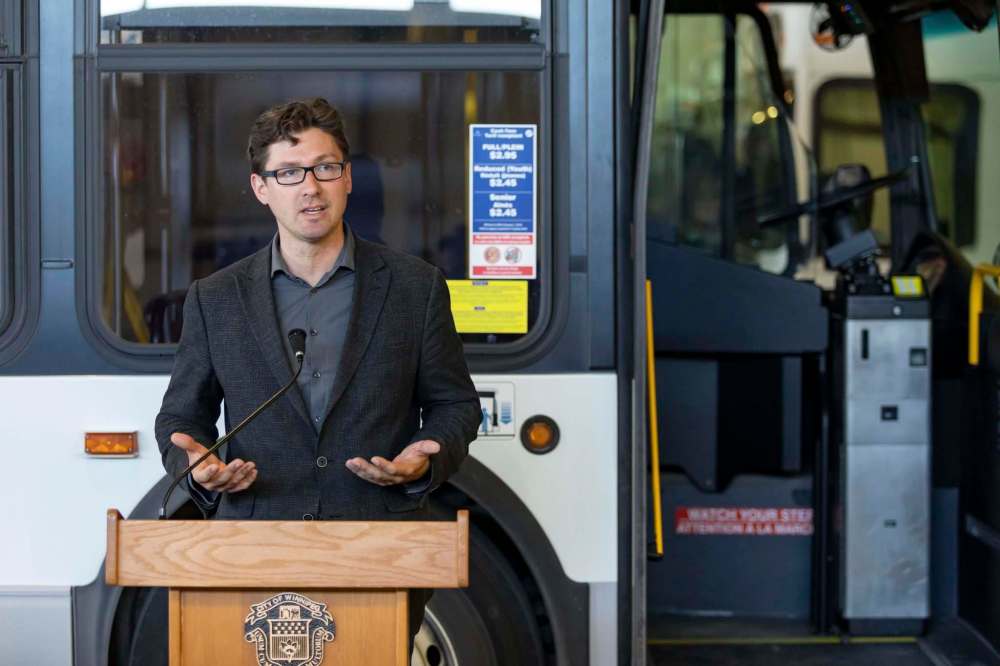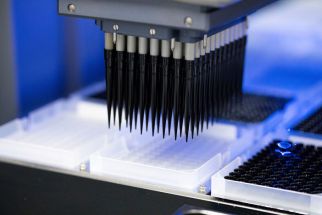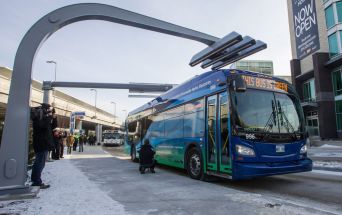Time to put pedal down on electric buses
Read this article for free:
or
Already have an account? Log in here »
To continue reading, please subscribe:
Monthly Digital Subscription
$0 for the first 4 weeks*
- Enjoy unlimited reading on winnipegfreepress.com
- Read the E-Edition, our digital replica newspaper
- Access News Break, our award-winning app
- Play interactive puzzles
*No charge for 4 weeks then price increases to the regular rate of $19.00 plus GST every four weeks. Offer available to new and qualified returning subscribers only. Cancel any time.
Monthly Digital Subscription
$4.75/week*
- Enjoy unlimited reading on winnipegfreepress.com
- Read the E-Edition, our digital replica newspaper
- Access News Break, our award-winning app
- Play interactive puzzles
*Billed as $19 plus GST every four weeks. Cancel any time.
To continue reading, please subscribe:
Add Free Press access to your Brandon Sun subscription for only an additional
$1 for the first 4 weeks*
*Your next subscription payment will increase by $1.00 and you will be charged $16.99 plus GST for four weeks. After four weeks, your payment will increase to $23.99 plus GST every four weeks.
Read unlimited articles for free today:
or
Already have an account? Log in here »
Hey there, time traveller!
This article was published 10/02/2021 (1763 days ago), so information in it may no longer be current.
Winnipeg was once a leader among Canadian cities in piloting zero-emission transit buses. It is now a follower.
Cities such as Toronto, Montreal, Edmonton and Vancouver have been incorporating battery-electric buses into their transit fleets for several years. Vancouver expects to have a fully electric bus line operating by 2022. Montreal plans to stop buying diesel buses by 2025. Even smaller cities such as Saskatoon are experimenting with battery-electric transit buses. Multiple jurisdictions in the U.S. have made great strides in electrifying their fleets.
Winnipeg was the first Canadian city to put a battery-powered transit bus on the road in 2014, followed by three more in what was then a groundbreaking pilot project. Winnipeg Transit no longer operates electric buses. A 2016 evaluation report recommended the purchase of 12 to 20 electric buses. The proposal was never pursued. A subsequent report made a similar recommendation; it, too, was not acted on.

City administration released a new proposal last week: the purchase of 16 zero-emission buses (eight hydrogen fuel-cell battery models and eight battery-electric ones). If the proposal gets the green light from city council, the buses could be road-tested in 2022.
Under the proposed plan, Winnipeg Transit could buy up to 110 zero-emission buses by 2027. It sounds promising. Still, there appears to be a reluctance at city hall to embrace this technology.
Coun. Matt Allard, who serves as chairman of the city’s public works committee, said the city should take a “cautious, incremental” approach to electrifying transit buses. He says council must ensure the city is getting value for money.
Due diligence is important. However, caution and incrementalism have in the past led to political inertia; there is always an excuse not to move past the “study” phase on electric buses.
The evidence is overwhelming that electric buses are reliable and cost-effective. They have been tested in Winnipeg’s harsh climate (including three full winters) and exceeded expectations. Manitoba has an abundance of hydro electricity and a bus manufacturer, NFI Group, that has been a world leader in manufacturing zero-emission buses.
Since those pilot projects, battery technology has advanced and the cost of purchasing zero-emission buses has declined. Integrating electric buses into Winnipeg’s transit grid does pose some challenges: zero-emission buses need to be recharged, either overnight or during scheduled runs, and logistically, they are not as flexible as diesel buses, which can operate for longer periods and are more easily redeployed during peak hours.
Those challenges can be overcome, as they have been in other jurisdictions. A phased-in approach would give Winnipeg Transit time to adapt.

The purchase cost of electric buses is also higher than diesel; however, those capital costs would be offset in large part by lower operating expenditures, including savings on fuel and maintenance. A multitude of green infrastructure grant programs also exist at the provincial and federal levels to finance up-front costs.
Electrifying Winnipeg Transit’s fleet would be a small part of reducing the city’s greenhouse-gas output. Emissions from diesel buses represent a minor share of Winnipeg’s carbon footprint. Coun. Allard has rightly said far more could be done to reduce emissions by increasing transit ridership and reducing single-vehicle use.
The city should do both.
Mayor Brian Bowman and city council have claimed in the past that reducing greenhouse-gas emissions is a priority. It’s time to put that into action by phasing out diesel buses and replacing them with clean, zero-emission vehicles.





